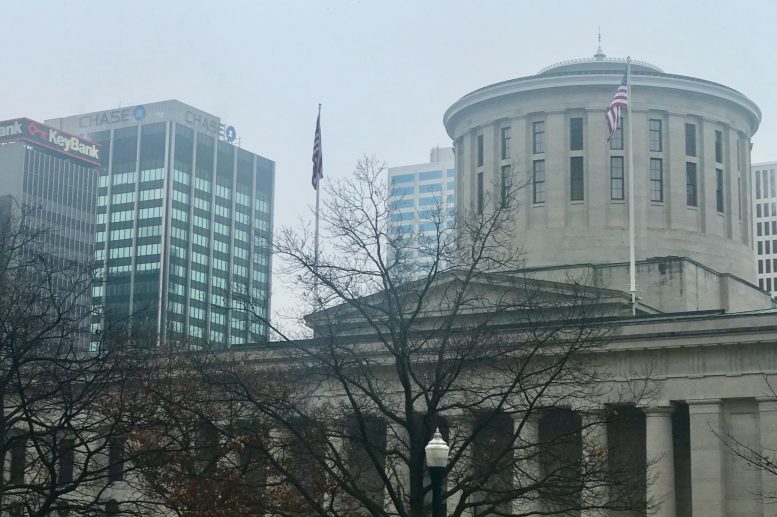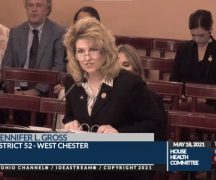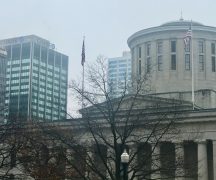By Susan Tebben
State and federal legislators are criticizing the lack of action on paid leave policy as the COVID-19 pandemic causes the closure of schools, sporting events and businesses.
Some state leaders have been urging administration to handle the ripple effects of the public health crisis as they balance the health risks of the disease.
House Minority Leader Emilia Strong Sykes asked Gov. Mike DeWine to consider the example of Illinois Gov. J.B. Pritzker in allowing out-of-work employees to obtain unemployment, “creating a temporary, emergency paid sick leave program to keep these workers at home — not back on the job to worsen a COVID-19 outbreak.”
“We know these disruptions will have a tremendous financial impact on low-income hourly workers who simply cannot afford to take extended periods of time off of work,” Sykes wrote in the Thursday letter, co-signed by Assistant Minority Leader Kristin Boggs, Minority Whip Paula Hicks-Hudson and Assistant Minority Whip Richard Brown.
The Democratic Caucus said the governor could use general revenue funding or increase and appropriate funding in the Controlling Board’s Emergency Purposes Fund to create a safety net for at-risk workers. Other options they offered were the near-capacity Budget Stabilization Fund or use of reserves from the Temporary Assistance for Needy Families (TANF) funds “that have historically been used for emergencies and unforeseen circumstances.”
The Centers for Disease Control and Prevention released guidance for the business response to COVID-19, which recommends that employers “actively encourage” sick employees to stay home.
“Employers should maintain flexible policies that permit employees to stay home to care for a sick family member,” the CDC stated. “Employers should be aware that more employees may need to stay at home to care for sick children or other sick family members than is usual.”
A collection of research by the Center for American Progress estimated 27% of private sector workers nationwide lack access to sick days or leave to take care of sick family members. Among the research was a study from the CDC that estimated 5 million people contracted the H1N1 virus in 2009 “because of a lack of workplace policies such as paid sick leave.”
“The continued lack of a federal law that would provide millions of workers with access to paid sick leave means that the coronavirus outbreak will likely have a similar or even more severe infection rate,” the CAP found.
Ohio U.S. Sen. Sherrod Brown is a co-sponsor on a bill that would provide paid sick days to workers during public health emergencies, and was one of four Democratic senators to send a letter to Vice President Mike Pence requesting help for workers during the COVID-19 outbreak.
In a page on his website specifically devoted to the outbreak, Ohio’s U.S. Senator Rob Portman said he would “continue to work with my colleagues on both sides of the aisle to find a bipartisan agreement to provide economic relief and support to all the individuals, families and small businesses impacted by the threat of coronavirus.”
According to the state thinktank Innovation Ohio, 13 states and the District of Columbia have passed paid sick days laws since 2011.





